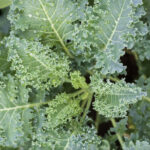 Back in my early marriage days, my husband and I spent a few days in New York City in springtime—pre-children and pre-mortgage.
Back in my early marriage days, my husband and I spent a few days in New York City in springtime—pre-children and pre-mortgage.
We splurged on a dinner I have always remembered. It was at the original Four Seasons restaurant on E. 52nd Street. The prices were hefty, so we decided we each only could order two things.
I started with clams casino and, for dinner, a fabulous roast duck. It was dark and crispy and covered with a luscious brown sugar glaze. From then on, I was hooked on duck!
I’ve roasted ducks several times over the years, mostly prepared with an orange sauce as the French like to do. Restaurants these days seem to offer duck breasts that are usually served rare, rather than a perfectly roasted bird with a sweet fruit glaze. If I order it, I usually ask the server if the chef could “cook it.”
After seeing some lovely plump Muscovy ducks at the West Shore Farmer’s Market, I decided to return to one of my longtime favorite recipes: duckling with orange sauce. While one duck won’t serve a huge family gathering, it is perfect (and festive) for a holiday dinner for four. It is no more difficult to make than a roast chicken and, if well cooked, duck is not at all “gamey.” Just make sure the duck you buy is at least 5 pounds or it will be like dinner at Bob Cratchit’s house in Dickens’ “A Christmas Carol.”
Duckling with Orange Sauce
Ingredients
- 1 ready-to-cook duckling, about 5 pounds (fresh is best)
- 2 tablespoons finely chopped onion
- ¼ teaspoon dried tarragon leaves (or 1 teaspoon chopped fresh tarragon)
- 2 tablespoons unsalted butter
- 2 tablespoons shredded orange peel
- ½ cup orange juice (preferably fresh)
- A pinch of salt
- ¼ teaspoon dry mustard
- ¼ cup currant jelly
- 2 tablespoons sweet red wine (choose port, marsala, madeira or apple brandy)
- 1 orange, pared and sectioned
- 1½ teaspoons cornstarch
Directions
- Place duckling breast side up on a rack in a roasting pan. Tie wing tips to the duck body with kitchen twine.
- In a small saucepan, cook the onion and tarragon in the butter until tender. Add the orange peel and juice, salt, mustard and jelly, stirring constantly. When the jelly is melted, stir in the wine and orange sections.
- Measure the sauce. Save half for glazing at the end and half for basting during cooking.
- Preheat the oven to 325 degrees.
- Pierce the duck skin with a fork and brush with the basting sauce.
- Roast the duckling about 22 minutes per pound (about 2 hours). If the duck appears to be browning too quickly, tent with aluminum foil. The duck is done when the drumstick feels very soft. Remember to baste frequently.
- Duck is usually fairly fatty. I suggest placing the bird on a thick bed of paper towels before placing it on a platter.
- Place the cornstarch in a small saucepan and add the sauce saved for glazing. Stir constantly until the sauce thickens and boils. Boil and stir for an additional minute and pour over the duck right before serving.
Some notes about preparing your holiday duckling:
- Some chefs believe that it is best to cut the duck into four sections (quadrants) with sharp kitchen shears. I have always used a sharp carving knife and cut it as I would a roast chicken.
- Duck is fun to decorate! Use red and green grapes, orange slices or kumquats or little lady apples, if you can find them. I like to accompany the duck with a mixture of brown and wild rice and a green vegetable.
- You can experiment with different spirits when making the sauce, like Grand Marnier or cognac. Orange marmalade works too if you can’t find currant jelly. Because duck is pretty rich, a red wine works as well as white (champagne or Prosecco are also lovely).
I hope you give cooking duck a try for something special this month.
Happy holidays to all readers of TheBurg!
If you like what we do, please support our work. Become a Friend of TheBurg!





